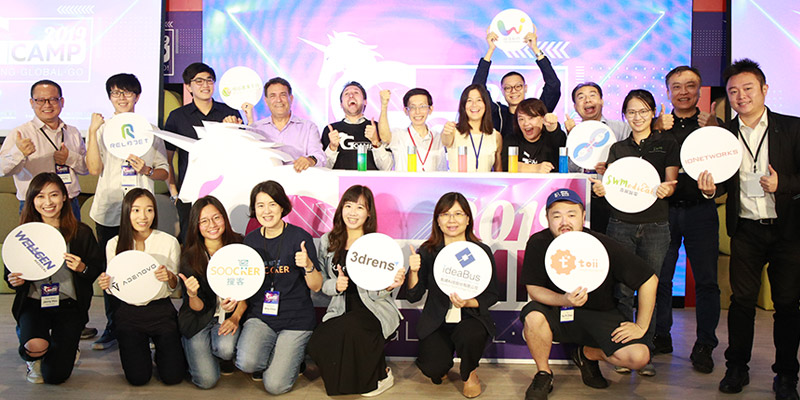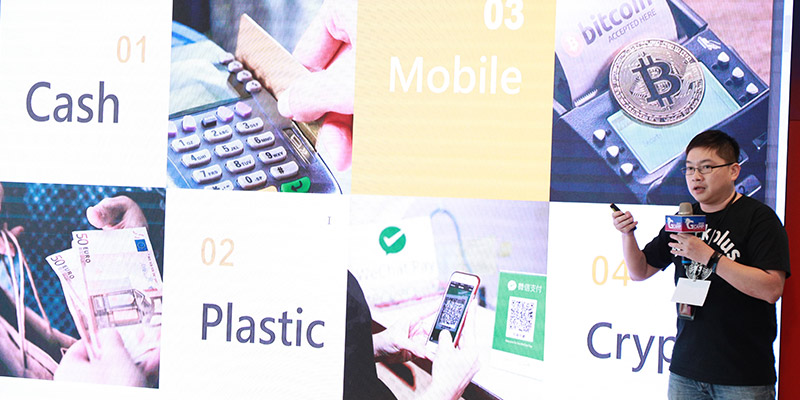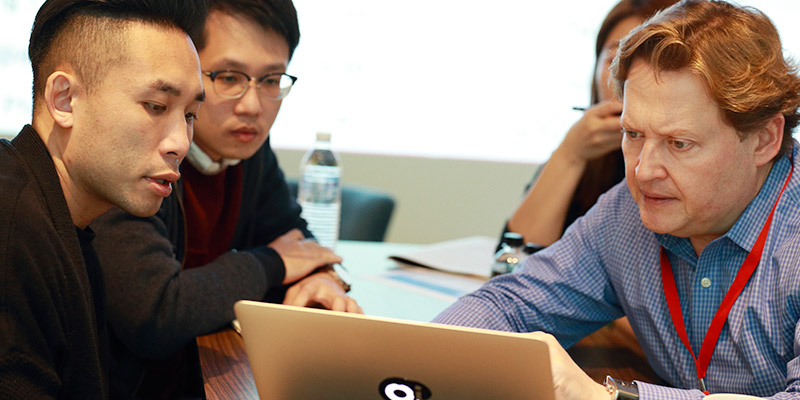

The COVID-19 epidemic as the Black Swan incident and the ongoing conflict between China and the United States have driven the global industry and economic situation into a reshuffle phase. The business model, technology investment, and even digital transformation are all changing. At this critical moment, not only are enterprises taking every step carefully, but Taiwan's new startups must also be cautious. Only by enhancing our vision and understanding the future can we turn crises into opportunities to reshape the world.
To help Taiwan's startups better grasp trends, access venture capital and resources, or create a win-win situation through corporate startup engagement (CSE), in the "2020 The State of Taiwan's Corporate Innovation and Startup Ecosystem ", new startups that received equity swap investments were identified through publicly available data (including news media, quarterly/annual reports of the National Development Fund, and publicly disclosed startup investments), and 90 new startups that received investment in 2019 were listed as well for startup teams looking to raise capital and explore market opportunities.
According to statistics, a total of 90 startups have been invested in 2019, including those from 14 sectors including e-commerce and retail, medical technology and pharmaceuticals, advertising content and marketing, hardware and IoT, B2B enterprise software solutions, fintech, automotive technology, information security (including blockchain), environment and agri-tech, travel and accommodation, social media and networking, sports technology, education, AI and machine learning technologies. The total amount of fundraising disclosed (79 companies willing to disclose the amount of fundraising) has exceeded NT$6.19 billion. The top 3 areas for fundraising were advertising content and marketing, tourism and accommodation, and information security (including blockchain).
In terms of technology, the majority of new startups receiving investments were in the "e-commerce and retail" sector, where the number of new startups receiving investments amounted to 16 (18% of the total). Examples include PULO for matchmaking decorating services, ChargeSPOT for matchmaking mobile power leasing, and StyleMap for matchmaking hairdressing services. The second largest area was the "Medical Technology and Biotechnology Pharmaceuticals" sector, where the number of new startups receiving investments amounted to 14 (16% of the total). The startups that received investments were mainly teams that integrated intelligent medical materials and systems. Examples include iWEECARE that provides a wearable thermometer for babies; Heroic-Faith that provides an AI lung intelligence hearing aid; and FaceHeart that provides an AI physiological data monitoring system. The third largest area was "advertising, content and marketing," the number of new startups receiving investments amounted to 9 (10% of the total). Examples include iKala, Appier and LOCUS.

In terms of time of establishment, most of the funded new startups were founded between 2015 and 2019, where the number was as many as 65, and most of them were involved in medical technology and pharmaceuticals. If we further analyze the location of the funded new startups, we find that nearly 80% of funded new startups are located in Taipei, with the exception in two areas. First, in the medical technology and pharmaceutical area, due to the advantage of the Hsinchu area as a biomedical cluster, 20% of the medical technology and pharmaceutical start-ups are located in the Hsinchu area (3 startups). As for the environment and agricultural technology section, due to the characteristics of Southern Taiwan as an agricultural base and its industry structure, 75% of the new startups (3 startups) are located in the Yunlin, Chiayi and Tainan regions.
In short, for Taiwan's new startups, taking into account the investment preferences of venture capital investors and adjusting and optimizing the layout of core technologies and products and services not only can greatly improve the success rate of fundraising, but also improve the understanding of market needs.
Having good skills is indeed the key to supporting entrepreneurship. But to survive, you need to find ways to address the Top 5 challenges of innovation and entrepreneurship: fundraising, market development/expansion, talent acquisition, regulatory restrictions, and business management. In this regard, it is suggested that Taiwanese startups can start from two aspects: to get their feet firmly on the ground by participating in Taiwan’s Accelerator, and then to take an active part in the International Innovation and Entrepreneurship Community programs to go global.
So, what are the startup accelerators and their focus areas in Taiwan?
There are many accelerators in Taiwan that offer investment funds, tiered applications, incubation programs, and demo days. There are only 17 Taiwan startup accelerators that can provide three or more services at the same time. If we deduct startups that rejoined different accelerators, a total of 290 startups were spawned in 2019. The Top 3 areas of interest are content and marketing, medical technology and pharmaceuticals, and B2B enterprise software solutions. Meanwhile, accelerators prefer to nurture startups that are two to three years old.
It's worth noting in particular that not all of the startups generated by the Taiwan accelerator were Taiwan-native teams. Up to 30% of the startup teams came from overseas markets such as Hong Kong, the US, India and Singapore. This means that Taiwan's innovation and entrepreneurial environment has become well known, attracting many overseas teams and inspiring Taiwan's startups to go global and plan their business operations in a globalized manner.

In response to the above trend, many international innovation and entrepreneurship community programs have emerged in Taiwan, which systematically cultivate local Taiwanese new startups to link the global innovation and entrepreneurship network and maintain the vision and pattern of international startups from Day 1. So, what are the international innovation and entrepreneurship community programs in Taiwan? According to statistics, there are a total of 16 international innovative entrepreneurial community programs, including TVC Tech Startup Incubation Accelerator, AAMA Taipei Cradle Program, Garage+, IAPS (Center of Industry Accelerator and Patent Strategy, NCTU), Taiwan Startup Stadium, H.Spectrum, TA (Taiwan Accelerator), Nangang Biotech Incubation Center - International Digital Health Accelerator Program, Anchor Raiwan, X Garage+ (Angel Investor), SYSTEX AI+ Generator Program, Asia Blockchain Accelerator, PwC's Scale-up, Fashion‧Entrepreneurship Accelerator, Chunghwa Telecom's 5G-themed International Innovation Accelerator, and NiEA (the Enterprise Digital Transformation Accelerator).
The International Innovation and Entrepreneurship Community Program focuses on emerging technologies and issues, including cloud services, green technology, artificial intelligence, 5G, smart devices and AR/VR, etc. Here, new startup teams not only have access to a global network of innovation and entrepreneurship, but more importantly, there are dedicated professionals to provide more comprehensive consulting services and matchmaking business services, such as the AAMA Cradle Program, which helps new startups to deepen their unique competitiveness and develop a clear business model, in order to grow rapidly and respond to the new challenges brought about by growth.
With different stages of operation: from the startup phase to the growth phase, the challenges faced by a startup team are different and so are the solutions. It is recommended that while deepening the core technology, Taiwan’s startups should not neglect to grasp the market dynamics and customer needs in order to adjust flexibly and nimbly to market demands. For example, the startup – Lions – has won the favor of major electronics manufacturers such as Compal Electronics with its unique Local-5G RAN core technical capabilities. It has successfully developed and tested 5G private networks suitable for smart factories and smart medical fields. It is an example that successfully used the CSE innovation model to create a win-win situation and gain a foothold in the future and the new world.